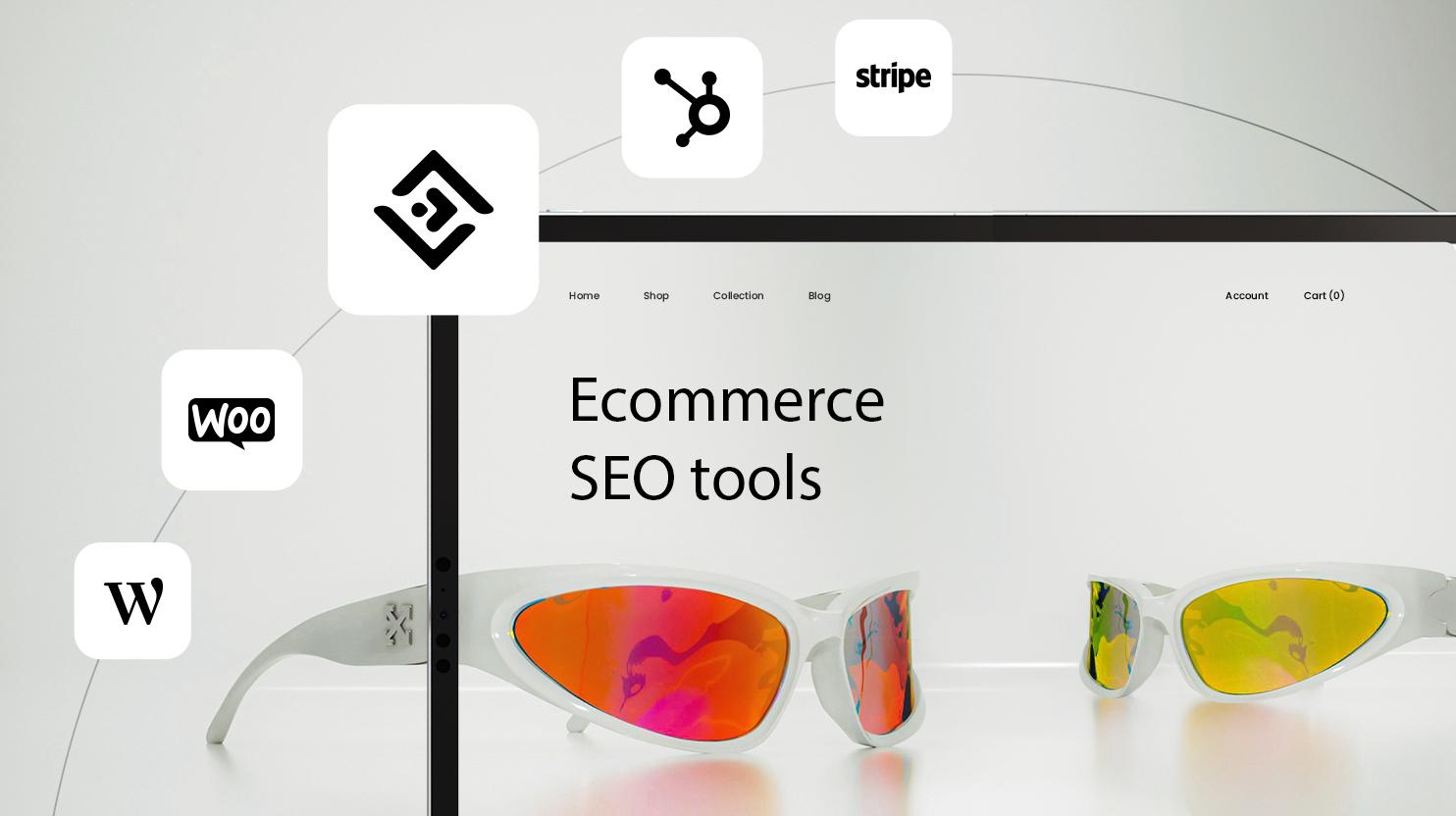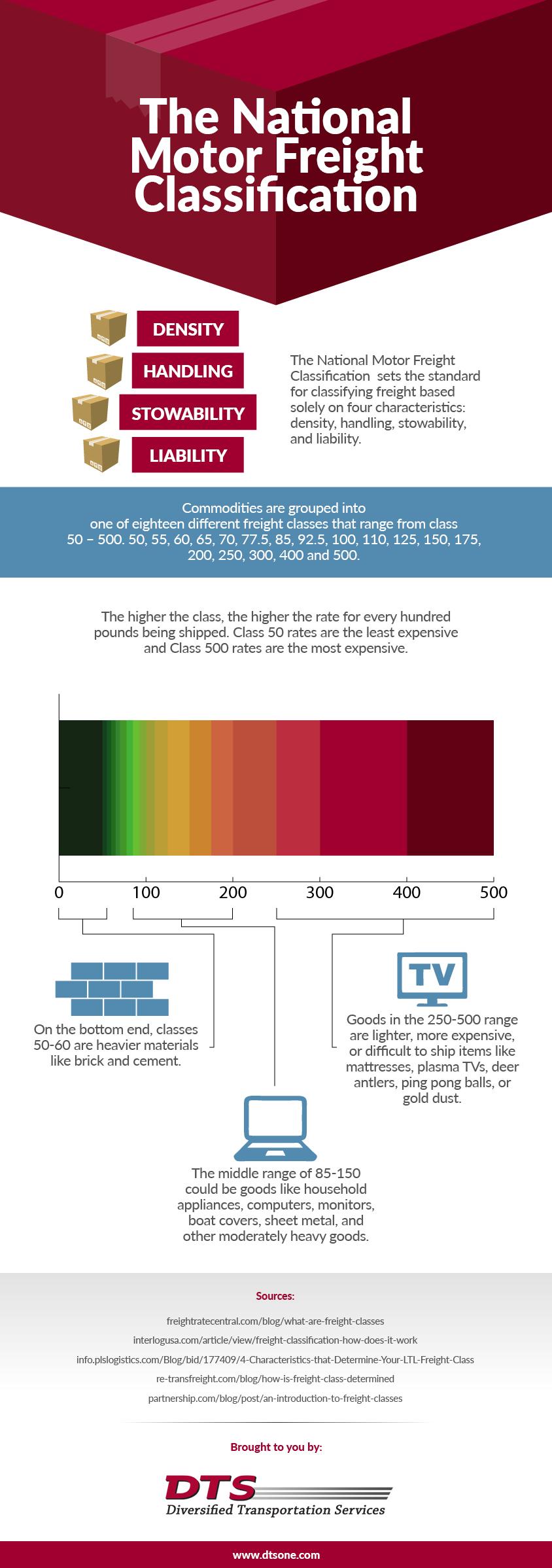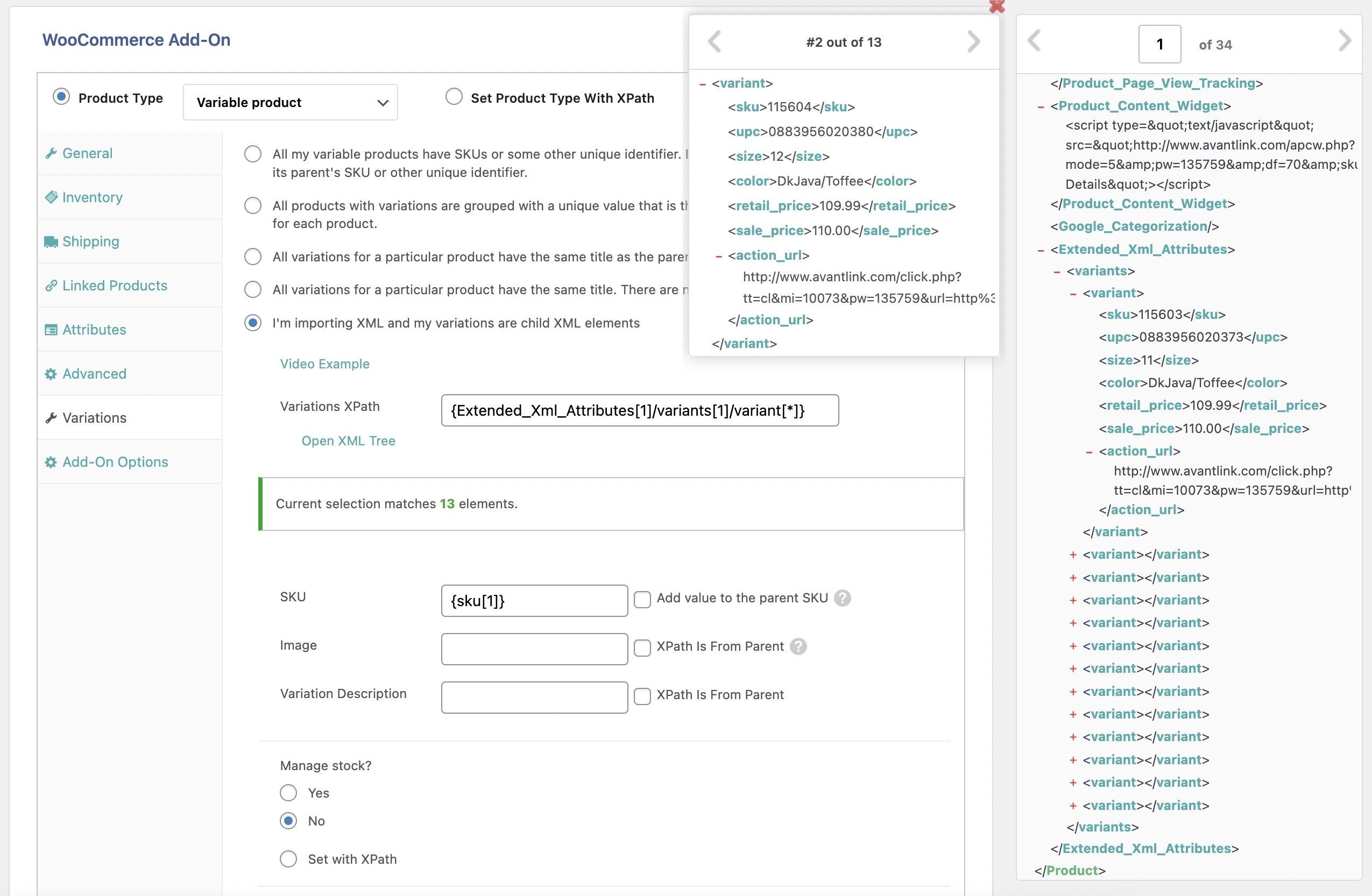Are you ready to take your online store to new heights? If you’re in the world of eCommerce, you know that standing out in the crowded digital marketplace is no small feat.With millions of products vying for attention, how do you ensure your store doesn’t get lost in the vast sea of options? Enter SEO—your secret weapon for boosting visibility and driving more traffic to your site. But don’t worry; you don’t have to navigate this complex landscape alone! In this article, we’re diving into the 12 best eCommerce SEO tools that can definately help elevate your online store rankings. Whether you’re a seasoned seller or just starting out,these powerful tools can streamline your optimization efforts,boost your search engine performance,and ultimately lead to increased sales. So, let’s explore how you can harness the power of these tools to turn your eCommerce dreams into reality!
Understanding Ecommerce SEO and Its Importance for Your Online Store
in the competitive landscape of online retail, understanding the nuances of SEO is crucial for any ecommerce venture aiming to thrive. Unlike traditional SEO, which focuses broadly on various types of websites, ecommerce SEO is specifically designed to optimize product pages, category pages, and the overall user experience on your online store. This means not only targeting the right keywords but also ensuring that your product descriptions are compelling,your site structure is intuitive,and your images are optimized for faster loading times.
SEO drives organic traffic to your online store, which means you don’t have to rely solely on paid advertising. This organic traffic can lead to higher conversion rates, as users tend to trust search engine results more than ads. By implementing effective SEO strategies, you increase your chances of appearing in the coveted top spots of search engine results pages (SERPs), directly impacting your visibility and sales.
Key aspects of ecommerce SEO include:
- Keyword Research: identifying terms your potential customers are searching for is foundational. Tools like Google Keyword Planner and Ahrefs can help you uncover high-traffic keywords relevant to your products.
- On-Page Optimization: This involves optimizing your product titles,meta descriptions,and headers to include target keywords,ensuring thay resonate with both search engines and users.
- Technical SEO: Speed, mobile-friendliness, and a secure connection (HTTPS) are essential for a seamless user experience, which also influences your search rankings.
- Content Marketing: creating valuable content that engages your audience,such as blog posts about product usage or industry trends,helps drive traffic and improves SEO.
Moreover, leveraging analytics is key to understanding your audience’s behavior and preferences. Tools like Google Analytics and SEMrush provide insights into traffic sources, user engagement, and conversion rates, allowing you to tailor your SEO strategies effectively. Keeping track of metrics such as bounce rate, average session duration, and conversion rate can inform you about areas needing improvement.
don’t underestimate the power of backlinks. Quality backlinks from reputable websites signal trustworthiness to search engines, enhancing your store’s credibility and ranking potential.Consider guest posting on related blogs or collaborating with influencers in your niche to build valuable links. In doing so, you not only boost your SEO but also expand your audience reach.

Key Features to Look for in ecommerce SEO Tools
When searching for the perfect ecommerce SEO tool,it’s crucial to focus on features that can genuinely enhance your online store’s visibility and performance. Here are some essential aspects to consider:
- Keyword Research: look for tools that offer robust keyword research capabilities. They should provide insights into search volume, competition level, and relevant long-tail keywords that can definitely help you target your audience effectively.
- On-Page SEO Analysis: The right tools will automatically analyze your website’s pages and suggest actionable improvements. These might include optimizing meta tags, improving header structures, and enhancing content relevance.
- Competitor Analysis: Understanding your competition is vital. Choose tools that allow you to analyze competitors’ traffic sources, keyword strategies, and backlink profiles to stay one step ahead.
- Backlink Monitoring: A strong backlink profile can significantly boost your rankings. Ensure the tool offers features for tracking your backlinks and assessing their quality.
- Reporting and Analytics: Extensive reporting features can help you track your SEO progress over time.Look for tools that provide customizable dashboards and detailed analytics regarding traffic, conversion rates, and other key performance indicators.
Additionally, consider tools that integrate well with your existing platforms. Seamless integration with content management systems, social media, and email marketing services can enhance your overall SEO strategy and save you time. Look for features such as:
- API Access: This will allow you to connect your SEO tool with other applications and automate various processes.
- Plugin Support: If your using platforms like WordPress, ensure that the tool has compatible plugins for easy implementation.
| Feature | Importance |
|---|---|
| Keyword Research | High |
| Competitor Analysis | Medium |
| On-Page SEO | High |
| Backlink Monitoring | High |
| Analytics Reporting | High |
consider the user experience of the tool itself. A user-friendly interface can make it easier to navigate and utilize the features effectively. Look for tools that offer:
- Intuitive Design: Ensure that you’re not wasting time figuring out how to use the tool.
- Customer Support: Opt for solutions that provide excellent customer service and resources to help you troubleshoot issues as they arise.

The Best Keyword Research Tools for Maximizing Your Store’s Visibility
Keyword research is the backbone of any triumphant eCommerce SEO strategy. By understanding what your potential customers are searching for, you can tailor your content and product offerings to meet their needs. Fortunately, ther are several powerful tools designed to help you uncover those golden keywords that will drive traffic to your online store. Here are some of the best options available:
- Ahrefs: Renowned for its comprehensive backlink analysis, Ahrefs also offers an incredibly robust keyword explorer.With features like keyword suggestions, search volume metrics, and keyword difficulty scores, it’s a must-have for any serious eCommerce operation.
- SEMrush: This all-in-one tool is perfect for deep keyword research,competitor analysis,and tracking your rankings.SEMrush’s Keyword Magic Tool provides a treasure trove of related keywords that can help you expand your content and product descriptions.
- Ubersuggest: A user-friendly tool that offers insights into keyword volume, competition, and seasonal trends. Ubersuggest is notably appealing for small buisness owners who need an intuitive interface that doesn’t overwhelm them with complexity.
- Google Keyword Planner: As a staple for many marketers, this free tool lets you discover keywords directly from Google. It provides invaluable data on average monthly searches and competition level,making it ideal for anyone starting out with SEO.
When selecting a keyword research tool, consider factors such as ease of use, the scope of data provided, and pricing. Implementing the right tool can help you shape your content strategy, enhance your product listings, and significantly improve your online visibility.
| Tool | Key Features | Pricing |
|---|---|---|
| Ahrefs | Backlink analysis, Keyword explorer, SERP overview | Starts at $99/month |
| SEMrush | Keyword Magic Tool, Competitor analysis, SEO audits | Starts at $119.95/month |
| Ubersuggest | Keyword suggestions, Competitive analysis, Free version available | Starts at $12/month |
| Google Keyword Planner | Search volume data, Keyword suggestions, Free | Free |
Incorporating these keyword research tools into your strategy will not only enhance your eCommerce store’s visibility but also empower you to make data-driven decisions. By understanding the language your customers use, you can create content that resonates with them, ultimately leading to increased traffic and conversions. Embrace the potential of these tools and watch your online presence grow!
On-Page optimization Tools That Make a Difference
When it comes to optimizing your online store for search engines, the right tools can make all the difference. On-page optimization is a crucial part of SEO that focuses on elements within your website to boost its visibility and ranking. With the right resources at your fingertips, you’ll be able to identify areas for improvement, enhance user experience, and ultimately drive more traffic to your site.
Here’s a list of some of the most impactful on-page optimization tools that can elevate your ecommerce SEO strategy:
- Yoast SEO: A popular WordPress plugin that simplifies the process of optimizing your content for search engines while ensuring readability and keyword usage are on point.
- SEMrush: This all-in-one tool offers comprehensive site audit features, allowing you to analyze your on-page SEO and get actionable recommendations to improve your rankings.
- Ahrefs: Not just for backlink analysis, Ahrefs provides insights into keyword optimization and content performance, helping you fine-tune your on-page elements.
- Google Search Console: A must-have for any online store, this free tool lets you monitor your site’s performance in search results and address any issues that may hinder your visibility.
- Moz Pro: With its suite of tools, Moz Pro offers on-page optimization recommendations, keyword tracking, and a handy page optimization feature that can guide your content improvements.
Choosing the right combination of tools can streamline your efforts and produce tangible results. For instance, integrating Yoast SEO with Google Search Console ensures that your content is not only optimized for keywords but also aligned with Google’s best practices. Moreover, tools like semrush can provide a thorough analysis of your competitors, giving you insights into their successful strategies so you can adapt and apply them to your own ecommerce site.
To illustrate the effectiveness of these tools, here’s a simple table that showcases some key features:
| Tool | key Feature | Best For |
|---|---|---|
| Yoast SEO | Content optimization | WordPress users |
| SEMrush | Site audit | Comprehensive analysis |
| Ahrefs | Keyword research | Content strategy |
| google Search console | Performance monitoring | all website owners |
| Moz Pro | On-page recommendations | SEO professionals |
By leveraging these tools effectively, you can transform your online store into a well-optimized platform that not only attracts visitors but also converts them into loyal customers. Each tool plays a unique role in your overall strategy, enabling you to tackle on-page optimization with confidence and creativity.

Top Analytics Tools to Track your SEO Success
Track Your SEO Success with these Analytics Tools
When it comes to boosting your online store rankings, understanding how your SEO efforts are performing is crucial. Utilizing powerful analytics tools can provide insights that help optimize your strategies and drive more organic traffic. Here are some of the top analytics tools that can help you measure your SEO success:
- Google Analytics: This is the gold standard for tracking website performance, offering detailed insights into user behavior, traffic sources, and conversion rates.
- SEMrush: Beyond just keyword tracking, SEMrush provides extensive site audit tools and competitive analysis features, allowing you to stay ahead of the competition.
- Ahrefs: Known for its comprehensive backlink analysis, Ahrefs also offers keyword research and content exploration features that help you refine your SEO strategy.
- Moz Pro: With an intuitive interface, Moz Pro enables you to track keyword rankings and perform site audits, offering actionable insights for improvement.
- google Search Console: This free tool from Google is essential for monitoring your site’s presence in search results,helping you identify issues and optimize your performance.
Incorporating these tools into your SEO arsenal will allow you to dissect your data thoroughly. You can track metrics such as organic traffic growth, bounce rates, and conversion rates. This facts can inform your decisions on which keywords to target, what content to create, and how to improve the overall user experience on your site.
Here’s a quick comparison table of these tools based on key features:
| Tool | Key Features | Best For |
|---|---|---|
| Google Analytics | User behavior, traffic sources | Comprehensive analysis |
| SEMrush | Site audits, keyword tracking | Competitor analysis |
| Ahrefs | Backlink analysis, content research | Link building |
| Moz Pro | Keyword rankings, site audits | User-friendly interface |
| Google Search Console | Search performance, issue detection | Google-specific insights |
By leveraging these analytics tools effectively, you can not only track your current SEO performance but also identify areas for future growth. Fine-tuning your strategy based on real-time data will empower you to achieve sustained success in the competitive eCommerce landscape.
Link Building Strategies and Tools to strengthen Your online Presence
Building quality links is crucial for enhancing your online visibility and driving traffic to your eCommerce store. Effective link building strategies not only improve your rankings on search engines but also establish your brand as a credible authority in your niche. Here are some potent techniques to consider:
- guest Blogging: Collaborate with reputable blogs in your niche to share valuable content. This practice not only earns you backlinks but also exposes your brand to a wider audience.
- Influencer outreach: Partner with influencers who resonate with your target market. They can help you acquire high-quality links through reviews, mentions, or collaborations.
- Content Marketing: create informative and engaging content that naturally attracts links. Think infographics, how-to guides, and case studies that others want to reference.
Utilizing the right tools can significantly streamline your link-building efforts. Here are some essential resources to help you stay organized and efficient:
| Tool | Purpose | Key Feature |
|---|---|---|
| Ahrefs | Link Analysis | Comprehensive backlink profile tracking |
| SEMrush | Competitor Analysis | Identify competitors’ backlink sources |
| BuzzSumo | Content Discovery | Find trending content in your niche |
| Majestic | Link Intelligence | Extensive link database for analysis |
Another effective approach is to focus on local SEO strategies if your eCommerce store serves a specific geographic area. By securing local backlinks from directories, local blogs, and community events, you can enhance your visibility in local search results.
Lastly, never underestimate the power of social media. Sharing your content across diffrent platforms can lead to organic backlinks as more users discover and share your offerings. Encourage your audience to engage with your posts, fostering a community that is likely to link back to your website in their own content.

user Experience and SEO: Tools to Enhance Your Store’s Usability
Creating an online store that not only attracts visitors but also retains them hinges significantly on user experience (UX). When users find your site easy to navigate, they are more likely to engage with your products and make a purchase. This is where the synergy between user experience and SEO comes into play. Optimizing usability can enhance your store’s visibility in search engines, making it essential to adopt tools that streamline this process.
Page load speed is one of the critical factors that affect both UX and SEO rankings. Tools like Google PageSpeed Insights can provide insights on how quickly your pages load and suggest improvements. A faster site not only keeps users happy but also reduces bounce rates,encouraging more time spent on your pages,which can signal to search engines that your content is valuable.
Another crucial aspect of usability is mobile responsiveness. With a significant percentage of online shopping now done via mobile devices, ensuring your store looks and operates seamlessly on smartphones and tablets is vital. Tools like Google’s Mobile-friendly Test can definitely help determine how well your site performs on mobile devices and highlight areas for improvement.
User behavior analytics tools, such as Hotjar, offer detailed insights into how users interact with your site. You can track where visitors click, how far they scroll, and where they drop off. Understanding these patterns allows you to optimize your design and content layout, ultimately making your online store more appealing and user-friendly.
Additionally, utilizing A/B testing tools like VWO or Optimizely can help you experiment with different layouts, call-to-action buttons, and overall design elements to see what resonates best with your audience. By continually refining your design based on real user feedback, you can create an environment that not only drives conversions but also enhances SEO effectiveness.
| Tool | Purpose | Key Feature |
|---|---|---|
| Google PageSpeed Insights | Page Speed Optimization | Performance suggestions |
| Google Mobile-Friendly Test | Mobile Responsiveness | Mobile usability score |
| Hotjar | User Behavior Analytics | Heatmaps and recordings |
| VWO | A/B Testing | Visual editor for tests |
| Optimizely | A/B Testing | Comprehensive data tracking |
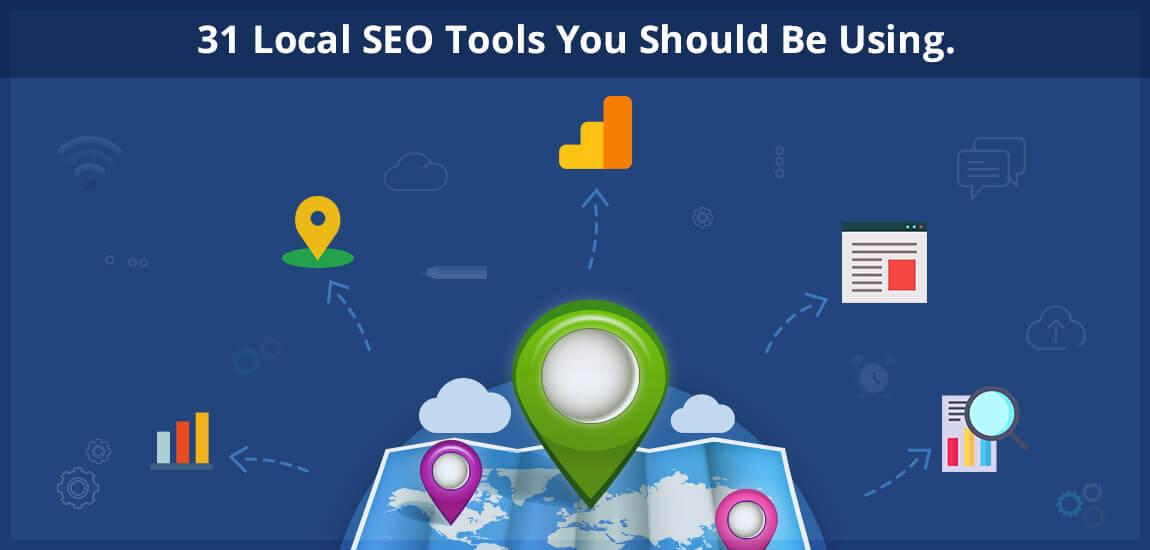
Local SEO Tools to Capture Customers Near You
To effectively capture customers who are nearby, leveraging local SEO tools is essential for any ecommerce business. These tools help optimize your online presence for local searches, ensuring that potential customers in your area can easily find and choose your store over competitors. Here are some vital tools to consider:
- Google My Business: This free tool allows you to create a business listing that appears in local search results. It’s crucial for managing your online presence across Google.
- BrightLocal: This tool offers comprehensive local SEO solutions, including citation building, review management, and local ranking tracking.
- SEMrush: While it’s primarily known for its keyword research capabilities, SEMrush also provides local SEO tools to help businesses analyze local competitors and optimize listings.
- Moz Local: This tool focuses on managing your business listings and ensuring consistency across all platforms,which is key for local search visibility.
- Yext: Yext allows businesses to manage their digital knowledge and ensures that your business information is accurate across various platforms.
Implementing these tools will not only help you improve your visibility in local searches but also enhance customer engagement. As a notable example, using Google My Business, you can post updates and respond to customer reviews, fostering a sense of community and trust.
Moreover, incorporating local keywords into your product descriptions and blog posts can significantly enhance your chances of appearing in search results tailored to nearby customers. This strategy draws local shoppers to your site and encourages them to visit your physical location if applicable.
| Tool | Key Feature | Best For |
|---|---|---|
| Google My Business | Business Listing Management | All Local Businesses |
| BrightLocal | Local SEO Insights | Service-Based Businesses |
| SEMrush | Keyword Research | Competitive analysis |
| Moz Local | Listing Consistency | Multi-Location Businesses |
| Yext | Digital Knowledge Management | Franchises |
By harnessing the power of these local SEO tools, you can drive more traffic to your online store and ultimately increase sales. don’t overlook the importance of local visibility in today’s competitive ecommerce landscape; it might vrey well be the key to unlocking your business’s full potential.
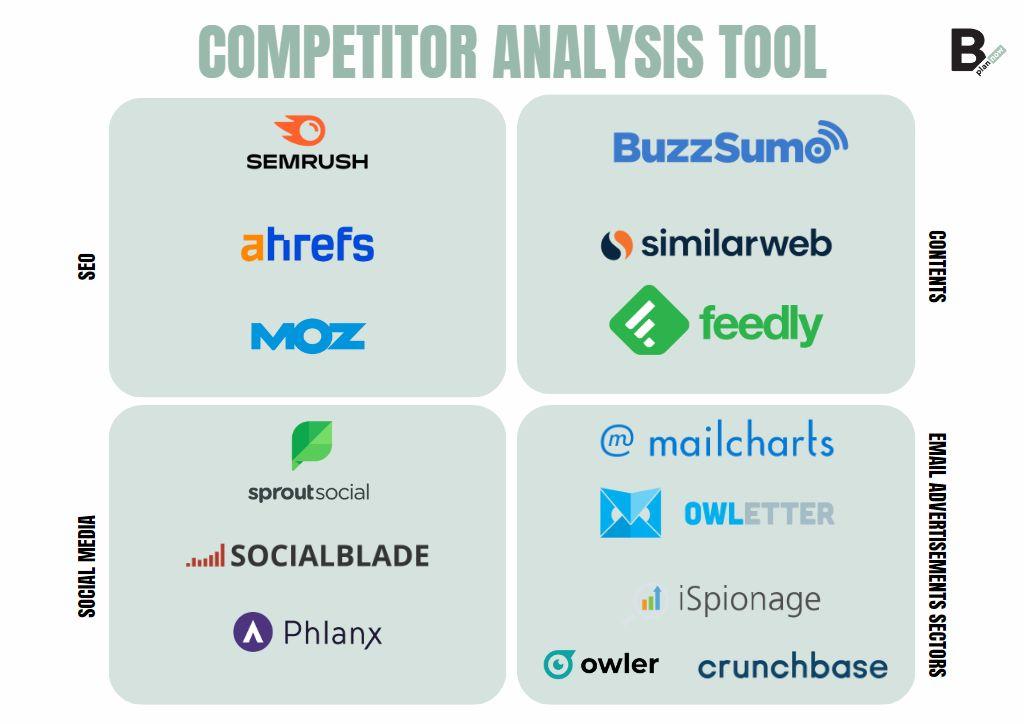
Staying Ahead of the Game: Tools for Competitive Analysis
In today’s fast-paced ecommerce landscape, staying ahead of your competitors is crucial. To gain a strategic advantage,leveraging the right tools for competitive analysis can provide invaluable insights. By understanding what your competitors are doing well—and where they are lacking—you can refine your strategies and improve your online store’s performance.
Here are some powerful tools that can definitely help you analyze your competition:
- SEMrush: This all-in-one tool offers a comprehensive suite for keyword research, site audit, and competitor analysis. Discover your competitors’ top-performing keywords and strategies with ease.
- Ahrefs: Known for its robust backlink analysis, Ahrefs also provides insights into your competitors’ organic search traffic and content performance.
- SpyFu: Get a deep dive into your competitors’ ad strategies and keywords with SpyFu, allowing you to uncover hidden opportunities in your niche.
- BuzzSumo: Analyze what content performs best for your competitors and identify key influencers in your market.
Utilizing these tools effectively requires a clear strategy. For instance,you can track keyword rankings over time to assess the impact of your SEO efforts compared to your competitors.Additionally, monitoring their social media activity can provide insights into their audience engagement tactics and content preferences.
consider creating a comparison table to visualize your findings:
| Tool | Key Feature | Best For |
|---|---|---|
| SEMrush | Keyword Research | Comprehensive SEO Strategy |
| Ahrefs | Backlink Analysis | Link Building Opportunities |
| SpyFu | Ad Strategy Analysis | Competitive PPC Insights |
| BuzzSumo | Content Performance | Content Marketing Strategy |
By regularly using these competitive analysis tools, you can stay informed about market trends and shifts.This proactive approach enables you to adapt your strategies quickly and capitalize on new opportunities before your competitors do. With the right insights, your online store can not only compete but thrive in a crowded market.
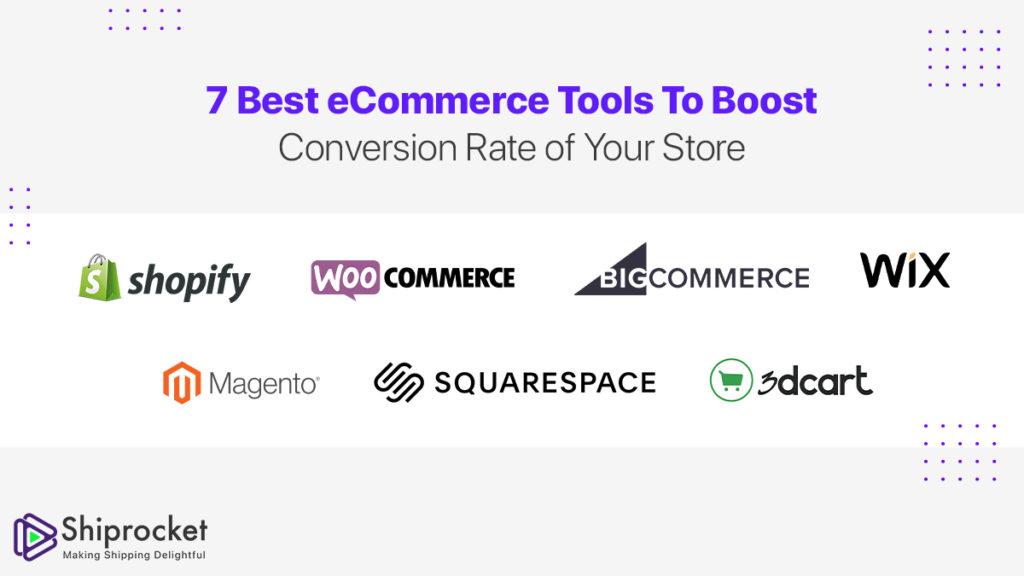
Final Thoughts: Choosing the Right Tools for Your Ecommerce Success
when it comes to boosting the visibility of your online store, selecting the right ecommerce SEO tools is paramount. With a myriad of options available, each with its own unique features and capabilities, it can be overwhelming to choose the best fit for your business needs. However, understanding your goals and the specific requirements of your ecommerce platform can simplify this process significantly.
assessing Your Needs
Before diving into the features of different tools, take a moment to evaluate what you truly need. Are you looking to enhance keyword research, improve your on-page SEO, or audit your site’s overall health? Knowing the answers to these questions will guide you toward tools that align with your objectives.Consider the following:
- Keyword Tracking: Look for tools that offer robust keyword tracking capabilities.
- Competitor Analysis: Features that allow you to analyze competitors can provide valuable insights.
- Link Building: if backlinks are part of your strategy, choose tools that streamline this process.
Integrations and Compatibility
Your chosen tools should seamlessly integrate with your existing ecommerce platform. Whether you’re using Shopify, WooCommerce, or Magento, ensuring compatibility can save you time and reduce headaches.Evaluate if the tools you’re considering can easily connect with your site’s architecture and other plugins you may already be using.
Budget Considerations
SEO tools come in various price ranges, so it’s essential to find options that fit your budget without compromising quality.Many tools offer free trials, allowing you to test their functionality before committing financially. Create a short list of tools that offer the best value for your needs,balancing features against cost.
Trial and Feedback
don’t hesitate to leverage free trials and demos to gauge which tools resonate most with your workflow. Gathering feedback from your team can also provide insights into usability and effectiveness. consider incorporating a feedback loop to evaluate the impact of these tools on your ecommerce success over time.
choosing the right ecommerce SEO tools is not just about features; it’s about finding the perfect fit for your business strategy. By assessing your needs, ensuring compatibility, being mindful of your budget, and gathering feedback, you can confidently select tools that will propel your online store to greater heights.
Frequently Asked questions (FAQ)
Q&A: 12 Best eCommerce SEO Tools to Boost Your Online Store Rankings
Q: Why is SEO important for eCommerce businesses?
A: Great question! SEO, or search Engine Optimization, is crucial for eCommerce businesses because it helps your online store appear in search engine results when potential customers are looking for products you sell. Higher visibility means more traffic, which can lead to increased sales. In a competitive space, effective SEO can set your store apart and attract more visitors.Q: What are some key features to look for in eCommerce SEO tools?
A: When choosing SEO tools for your online store, look for features like keyword research capabilities, site audit tools, backlink analysis, competitor analysis, and reporting features. These tools should help you identify opportunities to optimize your site, track your rankings, and understand what your competitors are doing.
Q: Can you recommend some of the best eCommerce SEO tools?
A: Absolutely! Here are some top-notch tools to consider:
- SEMrush – Great for keyword research and competitor analysis.
- Ahrefs – Excellent for backlink analysis and site audits.
- Moz Pro – Offers comprehensive SEO insights and tracking.
- Yoast SEO – Perfect for optimizing content if you’re using WordPress.
- Google Search Console – Essential for monitoring website performance.
- Screaming Frog – A fantastic site crawler for technical SEO audits.
- Ubersuggest – A user-friendly tool for keyword suggestions.
- SpyFu – Helps you analyze competitor strategies.
- Keyword Planner – Google’s tool for finding the right keywords to target.
- BrightLocal – Ideal for local SEO optimization.
- SERPWatcher – tracks your keyword rankings over time.
- GTmetrix – Evaluates your site’s speed, which is crucial for user experience.
Q: How do I choose the right tool for my online store?
A: Start by identifying your specific needs. Are you looking to boost your keyword strategy? Do you need help with technical SEO? Or maybe you want to keep an eye on your competitors? Once you know what you need, you can choose a tool that excels in those areas. Many tools offer free trials, so don’t hesitate to test a few before committing!
Q: Can I use these tools if I’m not an SEO expert?
A: Definitely! Many of these tools are designed with user-friendliness in mind, making them accessible even if you don’t have an SEO background. Plus, most of them come with tutorials, support, and community forums where you can learn and ask questions. It’s a great way to enhance your skills while boosting your store’s visibility.
Q: How frequently enough should I use these SEO tools?
A: Regularly! SEO is not a one-time task; it’s an ongoing process. You should be checking your analytics at least monthly to track your progress and make adjustments as needed. Additionally, conduct deeper audits quarterly to ensure your strategies are effective and to identify new opportunities.
Q: What are some common mistakes to avoid when using SEO tools?
A: One common mistake is ignoring the data these tools provide. Always analyze the reports and adjust your strategies accordingly. Another pitfall is over-optimizing, like keyword stuffing, which can hurt your rankings. don’t forget about user experience; a well-optimized site should be both search engine friendly and easy for customers to navigate.
Q: How soon can I expect to see results from using these tools?
A: Results can vary based on several factors, including your current SEO status and the competitiveness of your niche. However, with consistent effort and the right strategies, you might start seeing improvements in your rankings and traffic within a few months. Remember, SEO is a marathon, not a sprint!
Q: To sum it up, what’s the key takeaway for eCommerce store owners?
A: Invest in the right SEO tools and make SEO a priority for your eCommerce business. By leveraging these tools, you can enhance your online visibility, attract more customers, and ultimately boost your sales. Don’t wait—start optimizing today!
Closing Remarks
As we wrap up our journey through the 12 best ecommerce SEO tools to elevate your online store’s rankings, it’s clear that the right tools can make a world of difference. Whether you’re a seasoned pro or just starting out, leveraging these tools can help you stay ahead of the competition and attract more customers to your site.
Think about it: each tool on our list brings unique features to the table, from keyword research and analytics to competitor insights and site optimization. By integrating them into your strategy, you’re not just investing in technology; you’re investing in the future growth of your business.
So, why wait? Start exploring these tools today and watch your traffic soar! Remember, every click counts, and with the right SEO toolkit, you’ll be well on your way to turning those clicks into conversions. Happy optimizing!

